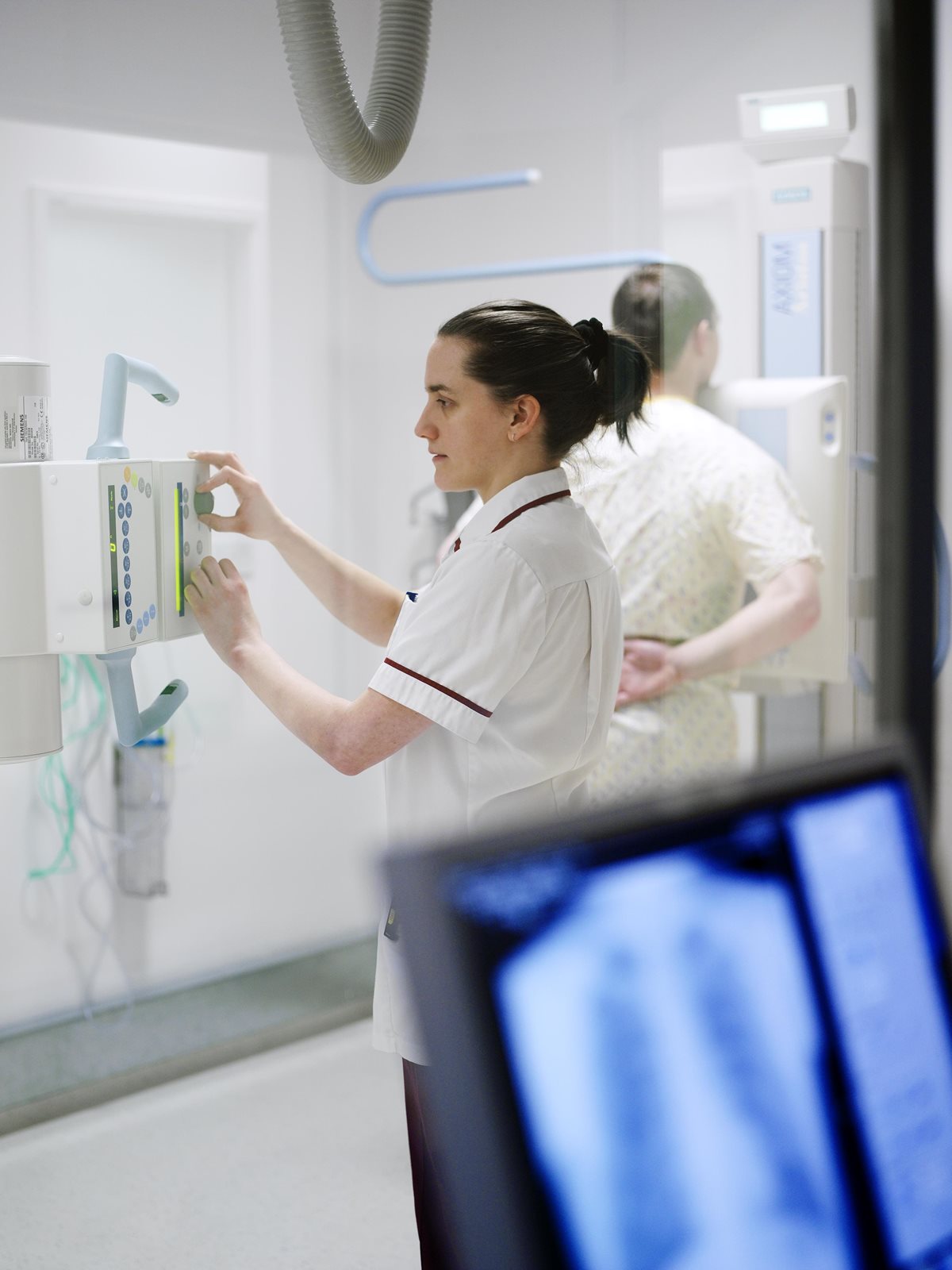Two teams of radiographers have won a significant amount of funding for projects that will directly improve the lives of people with cancer.
Nick Woznitza, a reporting and research radiographer at Homerton University Hospital NHS Foundation Trust, and Rebecca Steele, radiology manager at University College London Hospital, have received backing from the NHS National Diagnostics Capacity Fund, as has Beverley Snaith, lead consultant radiographer at Mid Yorkshire Hospitals NHS Trust.
The fund was launched by the national cancer director in 2016 to improve diagnostic capacity and outcomes for cancer patients.
Rebecca and Nick’s funding will allow them to trial a 'hub and spoke' model of radiographer chest x-ray reporting training, and to trial immediate reporting of GP chest x-rays by reporting radiographers for six months.
Nick explains how the trial will work: “The project is twofold. Patients will benefit immediately because reporting radiographers will report GP chest x-rays in line with the national optimal lung cancer pathway. This will positively impact upon report turnaround times and cancer waiting times.
“The other benefit is to those who teach and learn. Some centres have a well-established reporting radiographer team, and we will be using this experience to provide the work-based tutorials and learning for a pan-London cohort of trainee chest x-ray reporting radiographers, through the hub and spoke model.
“This will provide teaching to 14 radiographers without impacting on radiologist time, and will complement the accredited postgraduate education provided by Canterbury Christ Church University.”
Bev Snaith’s funding will focus on the CT pathway by allowing her to build on ongoing work on the implementation of creatinine point of care testing (POCT). Bev says her project will implement
POCT into the standard CT pathway, enabling access/one-stop clinics and earlier diagnosis.
Bev explains: “We know that POCT uptake has been limited and it is not used to streamline patient pathways. It also hasn’t been evaluated.
“We will map and baseline cost the steps in the Mid Yorkshire Hospitals CT care pathway for patients with suspected cancer. This will provide clinicians with the assurance they need, inform economic models and help POCT to be accepted in practice.”
Charlotte Beardmore, director of professional policy at the SCoR, commented: “Congratulations to the teams for being among the first recipients of this newly established fund.
“Their work will have a significant impact on how long patients have to wait for a cancer diagnosis leading to potential improvements in outcomes for patients.
“We look forward to hearing more about their work over the coming months which will go a long way towards achieving world-class cancer outcomes.”
